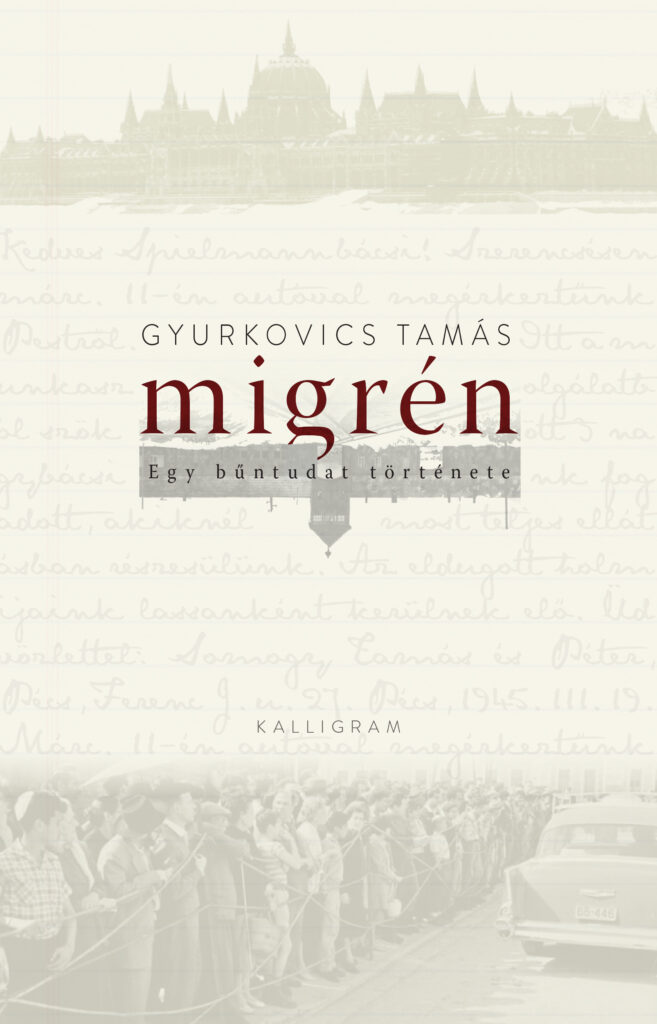
(excerpt)
“Did you say something, dad?” Judit asks. Spielmann sometimes has the feeling that Judit understands not only the words he utters, but also the thoughts flitting through his head.
“Nothing, my dear. Play! And study. Dinner will be ready soon.”
A vein throbs in Spielmann’s head. He starts pressing his hand to his forehead awkwardly, but he’s got more faith in Nitza’s thick, juicy stew. That it will help this bout pass too. Maybe I’m just hungry, he consoles himself, I haven’t had anything to eat since noon. His gaze slips to the newspaper in his lap. (…) Spielman never gets embroiled in political debates, but he agrees with Ben Gurion. The task of the young state is not to tear at its clothes and curse the Germans, but to build. And you need money to build. You need machines, raw materials, steel wire, coal, wood, and bricks, and three billion Deutschmarks is not the price of forgiveness, no, there is no talk of reparations here, the General is right about that. This is an installment plan. No, Spielmann rubbed his temples, no, that’s not right either. You use installment plans to pay off debts, and there was most certainly no talk of a loan here either. Besides, mere money had never been the issue. If it had been about money, then not a single hair on a single head of the Spielmans of Munkács should have been harmed. The seventy or eighty relatives, his father, his mother, Smúel, put together they hadn’t had enough wealth to their names to be worth sending trains for them, worth building and manning those enormous facilities, just for their sakes?
I’m an accountant. I understand numbers.
Smúel was his twin sister Magda’s son. My firstborn, as Magda still calls him. Spielmann often thinks of the boy. Perhaps because he resembled Yisrael, or, more precisely, his son resembles Smúel, since Smúel had been the older of the two. Still is the older of the two, he corrects himself. Yisrael was born yesterday, but Smúel had been in elementary school at the time. True, the distance between the two of them is continuously getting smaller. My son is growing like a toadstool, soon enough he’ll join the army, but Smúel will always be seven years old. He will never age, not a day.
When the doctor had learned that Spielman and Magda were twins, he had taken Spielmann’s sister out of the line. He put her next to Spielmann, but they were not allowed to speak. He pointed at Smúel and said, “the little boy,” those were his words, “will be better off with his grandmother.” He even stroked his face. Months had passed before Spielmann had seen his sister again. She seemed to have gone completely mad. She didn’t recognize him. Sometimes she mistook him for their father, sometimes for her dead son. After the liberation, though, when they saw each other again in Munkács, she was herself again. At least her mind, because her body had changed. She had a beard, and not just a little downy moustache, like many of the Sephardic women from the city, but a real beard. Little tufts of hair on her chin and cheeks. And her back was hunched and her skin splotched. Magda had become ugly, but only temporarily, because she slowly changed back, even if she was never quite the way she had been before the war. But she was more herself. She was even able to become a mother again, she just had had to leave that land. She and her husband Nahman had emigrated long before he and Nitza had. Spielmann had insisted on waiting in Prague for the declaration of the independent Jewish state. Everything has a logic of its own, he would say. You can’t emigrate to a country that doesn’t exist, you have to hold on to your passport, your citizenship until the very end! Well, Magda and Nahman, they had had no intention of holding on to anything. They had had enough of it all by ’47, the familiar houses with strangers living in them, the new borders, the new passports, the Soviets, the Slovaks, the Romanians, and the Hungarians too. (…) She had fled to Palestine on a Cyprian smuggling ship. They say that when she first set foot on Israeli soil, it was smack in front of a British patrol. (…) They had celebrated the foundation of the state here, Magda and Nahman, “and with a wine from Mount Carmel,” she always added, as if the wine produced here meant the fulfillment of the prophecy that promised this land to the people of Abraham, Isaac, and Jacob.
“Dinner!” Nitza shouted from the kitchen.
The head of the family takes his hands from his forehead. He knows that time has proven him right. What he sought when he emigrated this country has given him. Life here is not without its troubles or fears either, but it can be calculated more precisely. Here, there is even a sort of logic to the tension: Sabras against Oleks, those who had resisted against those who had survived, nationals against communists, Palestinians against Jews, and so on. This gives a regular swing of the pendulum to everyday life, at least until these conflicts break the familiar span of their swing, because then they make life here uncertain too.
Translated by Thomas Cooper
